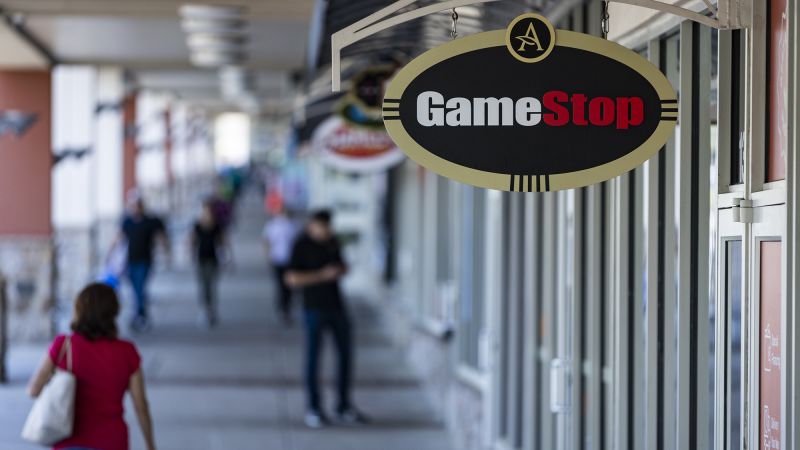The recent surge in meme stocks like GameStop has left Wall Street short-sellers with significant paper losses, totaling over $1.2 billion, according to research from S3 Partners. The gains they had accrued earlier in the year were wiped out in just one day, highlighting the risky nature of betting against these volatile stocks. Short-sellers play a key role in preventing market bubbles, but they have become the target of disdain from day traders who see them as profiting off others’ failures.
The rise of meme stocks can be attributed to a sense of tribalism within the investing community, particularly the disdain for short-sellers. Retail investors and figures like Elon Musk have criticized short-sellers, fueling the frenzy around stocks like GameStop. The Reddit community WallStreetBets played a significant role in pushing these stocks higher, using profane language and memes to rally against the shorts. For many day traders, inflicting financial pain on short-sellers became a priority over personal gain.
While meme stock fever may be on the rise currently, it is unlikely to reach the levels seen in the past, such as the GameStop frenzy of 2021. At that time, GameStop’s short interest was at a staggering 140%, a situation that is not mirrored in the current market. Short interest for GameStop now stands at 24%, indicating negative sentiment towards the stock but not to the extreme levels seen before. Despite the lingering negative sentiment, it is likely that current GameStop shorts will not repeat the mistakes made by their predecessors.
The fundamentals of GameStop paint a grim picture, as the company faces challenges as a mall-based retailer amidst a changing retail landscape. Short-sellers are facing pressure to cover their positions, potentially driving the stock price even higher. However, new short sellers may enter the market if the stock price remains elevated, adding to the tug-of-war between short-sellers and long-positioned investors. The ongoing battle between these two groups reflects a deep-rooted conflict within the investing community, driven by differing perspectives on market dynamics and profit opportunities.
Overall, the saga of GameStop and other meme stocks highlights the volatile and unpredictable nature of the stock market. The rise of day trading communities like WallStreetBets has added a new layer of complexity to market dynamics, where retail investors can have a significant impact on stock prices. While short-sellers continue to play a critical role in market efficiency, they also face challenges from coordinated retail trading efforts. The ongoing battle between short-sellers and meme-driven traders serves as a reminder of the ever-evolving nature of the financial markets, where sentiment and social media can exert substantial influence on stock movements.













